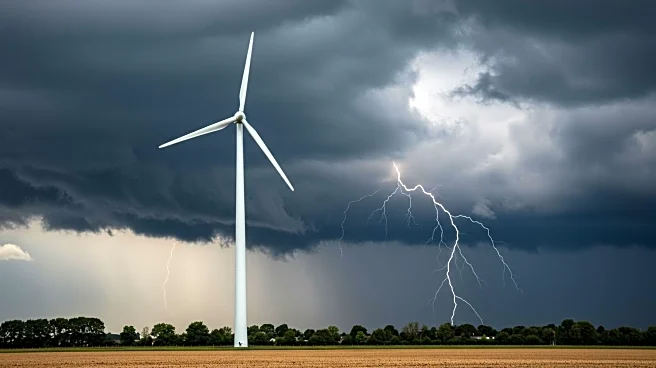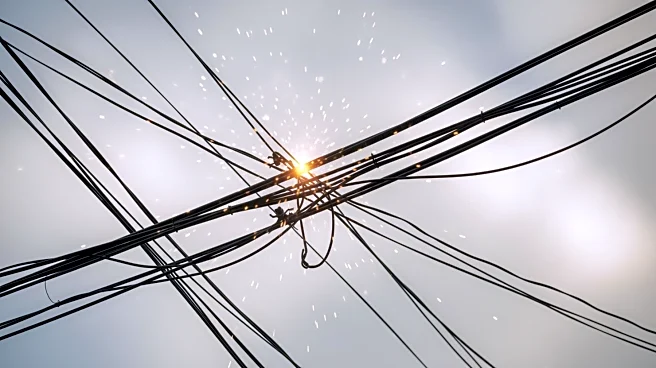What is the story about?
What's Happening?
President Trump recently criticized New Jersey's wind energy projects, attributing the state's rising energy prices to windmills. In a Truth Social post, he claimed that windmills are responsible for a 28% increase in energy prices, despite the fact that New Jersey's electricity generation from wind energy is minimal. The state's renewable resources, including wind and solar, account for only 8% of its total electricity generation, with wind energy contributing just 0.3% in 2023. Trump's comments come as New Jersey faces increased energy costs during a hot summer, with local providers raising rates by up to 20%. The state's governor, Phil Murphy, has ordered an investigation into PJM Interconnection, the primary grid operator, to address these issues.
Why It's Important?
The criticism from President Trump highlights the ongoing debate over renewable energy's role in electricity pricing. While Trump attributes rising costs to wind and solar energy, experts suggest that increased demand during hot weather is a significant factor. This situation underscores the challenges states face in balancing energy supply and demand while transitioning to renewable sources. The investigation ordered by Governor Murphy could lead to changes in how New Jersey manages its energy grid, potentially affecting future energy policies and pricing structures. Stakeholders in the renewable energy sector may face increased scrutiny and regulatory challenges as a result of these developments.
What's Next?
Governor Murphy's directive for an investigation into PJM Interconnection may lead to findings that could influence future energy policies in New Jersey. If the investigation reveals inefficiencies or mismanagement, it could prompt reforms in grid operations or energy pricing strategies. Additionally, Trump's continued criticism of renewable energy may impact public perception and political discourse around energy policy, potentially influencing legislative actions at both state and federal levels. The outcome of these developments could affect investment in renewable energy projects and the pace of New Jersey's transition to cleaner energy sources.
Beyond the Headlines
The debate over renewable energy and its impact on electricity prices touches on broader issues such as environmental sustainability and economic resilience. As states like New Jersey navigate the transition to renewable energy, they must consider the long-term benefits of reducing carbon emissions and fostering energy independence. The political discourse surrounding these issues may also reflect broader cultural attitudes towards environmental responsibility and technological innovation. The investigation into PJM Interconnection could reveal systemic challenges in integrating renewable energy into existing infrastructure, highlighting the need for strategic planning and investment.
















